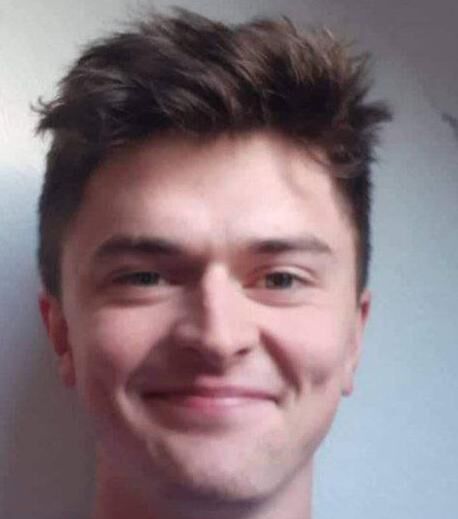Comment: A universal public healthcare system would benefit everyone

Healthcare workers donning PPE and scrubbing our hands each day did so not just for ourselves, but for the patients under our care and for loved ones at home.
A few weeks ago, Taoiseach Micheál Martin looked sombrely into the country’s living rooms and announced that as coronavirus cases soared, we would need to enter a further, painful period of lockdown.
True to form as a former schoolteacher, Mr Martin concluded with an Irish proverb: “Ar scáth a chéile a mhaireann na daoine”.
(“Remember lads” Mr Regan used to say to us in Irish class, “if you’re unsure how to end an essay, just go with the first seanfhocal you think of.”)
To be fair, it was well-chosen: “people live in each other’s shadow”.
That no man is an island, in other words; that the lives we lead are close, vulnerable and contingent on those around us, to a greater extent than we might like to admit.
So much has changed since the start of the Covid-19 pandemic. Lives have been lost, weddings cancelled, funerals muted, and social life as we know it upended by the paradox of protecting each other by remaining apart.
And, as evenings and optimism grow dimmer, I find myself reflecting not on what has changed, but on what has not. Indeed, some of the most important lessons of recent months have been true all along.
I believe the single most pressing of these is that, in a fragile world, to be human is to depend on each other. It may have taken a pandemic to lay bare this truth, but it has significant ramifications for the major issues affecting our society beyond Covid.
Consider the strategies we have adopted to curtail the spread of the virus. As terms like ‘r-nought’ and ‘asymptomatic transmission’ entered public consciousness, we realised that successful efforts to flatten the curve would need to be collective.
Healthcare workers donning PPE and scrubbing our hands each day did so not just for ourselves, but for the patients under our care and for loved ones at home. For young people – the great majority of whom would experience mild disease if infected – important occasions like graduations and Debs were missed, to protect the other people in their lives. For society as a whole to be protected, everyone needed to play their part.
As we look ahead and pin our hopes on the search for a vaccine, this same logic asserts itself. Once available, the need for equitable distribution of any vaccine is likely to prove as crucial as the science itself. For Irish society to gain control of Covid-19, a vaccine must be accessible to all, with priority given to the most vulnerable.

More importantly, globally, if a 'vaccine gap' emerges with rich nations stockpiling as transmission continues unchecked in poorer nations, this will be both gravely immoral and deeply short-sighted. As this year has shown, if one region is overwhelmed in a pandemic, it rapidly becomes everybody’s problem. The only way to eliminate the threat of Covid-19 anywhere will be to eliminate it everywhere.
In short, this crisis has shown that the well-being of everybody in society is fundamentally inextricable from our own. However, it is not just in a pandemic that self-interest and altruism should align.
Consider our health service in general. Even before the pandemic, the Irish health system was creaking at the seams, with an overstretched workforce, lengthening waiting lists, and the annual winter routine of the ‘trolley crisis’ in emergency departments nationwide.
If we cannot afford to go private, we must wait. This is deeply wrong.
What’s more, it is counterproductive. When the public system is neglected and care is disjointed, everybody suffers. Rich or poor, we would all benefit from a universal public healthcare system providing excellent and timely care. When push comes to shove, we all depend on a functioning public health system.
Healthcare is a human right, to which all people are entitled no matter who we are. By bringing about a healthcare system that truly vindicates this right, we all do better.
This is not just true for healthcare. Many issues that once felt removed from us – from working conditions in factories to living conditions in refugee centres – have acquired new relevance in recent months.
In a pandemic, if workers are afraid to report symptoms for fear of losing their job, or asylum seekers are packed into bunkbeds alongside people they do not know, it matters to the rest of us very directly.
Yet, pandemic aside, if adequate sick-pay is guaranteed to all workers, this benefits you even if you are not sick.
If living conditions in direct provision centres and on halting sites are improved, this benefits you even if you are not an asylum seeker or a Traveller.
If everybody is guaranteed a decent place to live, this benefits you even if you are not homeless.
Pandemic or not, when a society looks after the health, social conditions and material well-being of its most vulnerable, the vast majority of the population stands to benefit. This is because a society in which universal human rights are upheld for all people, from healthcare to housing to adequate working conditions, is a society that is safer, more prosperous and happier for everyone.
Ar scáth a chéile a mhaireann na daoine: we do indeed live in each other’s shadow. One of the great ironies of this pandemic has been the immediacy with which our eyes were opened to this truth – yet it was true all along.





